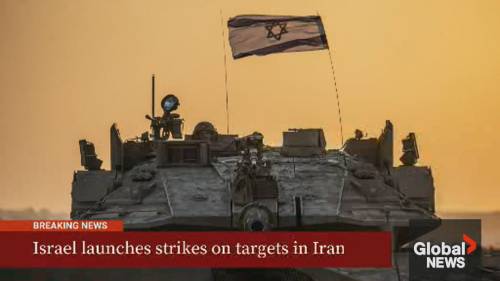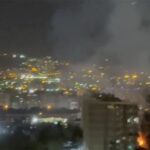I arrived in Tel Aviv just before dawn broke over the Mediterranean. This city, usually vibrating with life even at early hours, felt different today – tense and watchful. Israeli airstrikes on Iran had begun overnight, and the geopolitical chessboard of the Middle East had once again been violently reshuffled.
“We heard the sirens around 2 a.m. but nothing came near us,” explained David Levy, a cafe owner opening his shop despite the tension. “Life continues, what choice do we have?”
The Israeli military confirmed striking military targets inside Iran, including missile production facilities and air defense systems near Tehran and Isfahan. This operation marks a significant escalation in the decades-long shadow war between these regional powers – but one that appears calculated to limit civilian casualties and allow both sides a potential off-ramp from full-scale conflict.
My sources at the Pentagon indicate Israel gave Washington advance notice of the strikes, which came in retaliation for Iran’s unprecedented direct missile attack on Israel earlier this month. That barrage of nearly 300 missiles represented the first direct military confrontation between the two adversaries after years of proxy warfare.
“This is a precisely calibrated response,” explained Dr. Sarah Abelman, senior fellow at the Washington Institute for Near East Policy, when we spoke by phone. “Israel needed to demonstrate capability and resolve without triggering wider regional war. The targeting of military infrastructure rather than nuclear sites suggests they’re leaving room for de-escalation.”
Iranian state media downplayed the attacks, initially claiming their air defenses had successfully intercepted most incoming threats. However, satellite imagery obtained from European intelligence sources shows damage to at least three military installations, including a key Revolutionary Guard base outside Tehran.
On the streets of Jerusalem yesterday, I found divided opinions about the wisdom of the strikes. “Iran must understand there are consequences,” said Yossi Cohen, a 57-year-old shopkeeper. Across town, peace activist Maya Goldstein countered: “Each retaliation just brings us closer to catastrophe. When does it end?”
The timing of these strikes carries particular significance. They come amid Israel’s ongoing military campaign in Gaza following the October 7 Hamas attacks, and operations against Hezbollah in Lebanon. The Biden administration has been walking a diplomatic tightrope – supporting Israel’s right to self-defense while urgently pushing for de-escalation across multiple fronts.
“We’re seeing the most dangerous regional escalation spiral in decades,” UN Special Envoy for the Middle East Tor Wennesland told me during a brief interview in Amman yesterday. “The risk of miscalculation leading to wider conflict cannot be overstated.”
Oil markets reacted immediately, with Brent crude jumping 4% on news of the strikes before stabilizing as the limited nature of the operation became clearer. This economic vulnerability underscores what’s at stake beyond the immediate military confrontation.
Iran’s Supreme Leader Ayatollah Ali Khamenei has publicly vowed a “harsh response” to any Israeli attack, but Tehran now faces difficult calculations. Responding too forcefully risks wider war when Iran’s economy is already struggling under sanctions. Failing to respond meaningfully could undermine the regime’s carefully cultivated image of strength.
“The Iranians have to consider the domestic audience that expects retaliation, but also their strategic position,” explained Farideh Farhi, an Iran expert I’ve consulted with for years. “They may look for asymmetric responses through regional proxies rather than direct military action.”
During my previous reporting in Tehran last year, I found a population exhausted by economic hardship and international isolation. “We are caught between our government’s policies and Western pressure,” a university professor told me then, speaking on condition of anonymity. “Ordinary people suffer most.”
U.S. officials have confirmed that American forces helped Israel intercept some Iranian missiles during the earlier attack on Israel, but emphasize they had no direct role in these retaliatory strikes. Secretary of State Antony Blinken has been working the phones with regional counterparts, pushing for restraint from all parties.
The immediate question is whether this exchange of fire will remain limited or spiral into something far more destructive. Israel’s careful targeting suggests a desire to end this round of escalation, but the decision now lies with Tehran.
Standing on a Tel Aviv rooftop this morning, watching Israeli F-16s returning to base, the fragility of peace has never felt more palpable. The Mediterranean glitters peacefully below, a cruel contrast to the strategic calculations and potential for catastrophe hanging over the region.
Whatever comes next, the landscape of Middle Eastern power dynamics has shifted again. And as has happened so often throughout history, civilians across multiple countries hold their breath, hoping the calculations of their leaders don’t lead toward the abyss of wider war.






